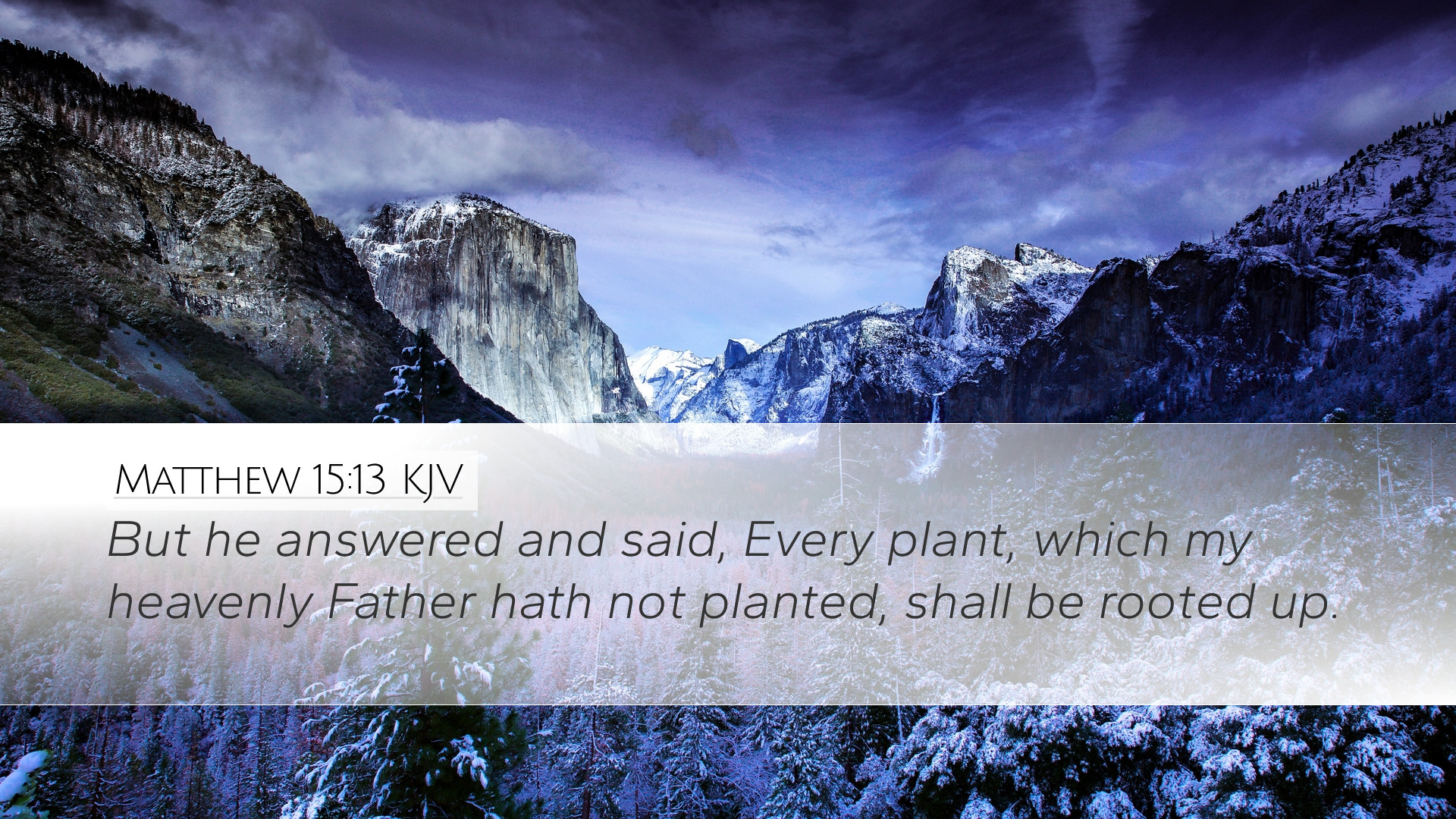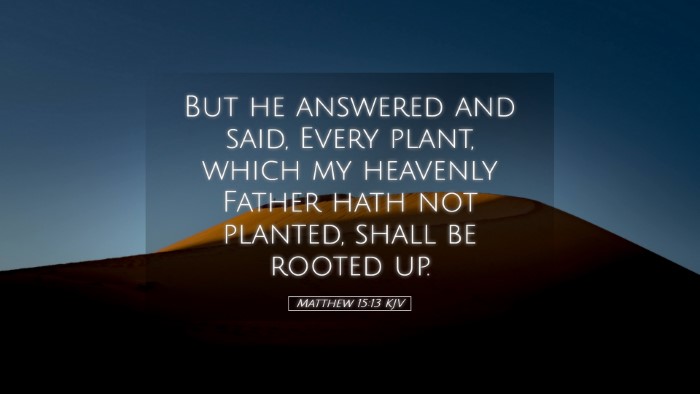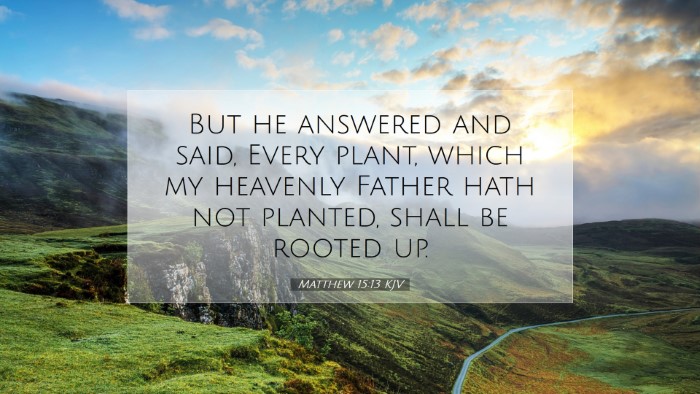Commentary on Matthew 15:13
Verse: "But he answered and said, Every plant, which my heavenly Father hath not planted, shall be rooted up."
Overview
In Matthew 15:13, Jesus responds to the criticisms of the Pharisees regarding His teachings and the conduct of His disciples. This statement serves as a profound declaration about spiritual authority and the consequences of unfruitful endeavors. By invoking the imagery of plants and rooting, Jesus communicates the divine principle that only those things established by God will endure, while human traditions and false teachings will ultimately be removed.
Insights from Public Domain Commentaries
Matthew Henry's Commentary
Matthew Henry characteristically emphasizes the importance of true religion and the folly of adhering to mere traditions. He clarifies that the ministry and teachings which God has not ordained are akin to plants not planted by the Father; they lack the divine source of nourishment and ultimately face destruction. In responding to the Pharisees, Henry elucidates that Christ points to their empty traditions, warning that they have not been rooted in God's word:
- Spiritual Origins: Understanding that God must plant the seed of true doctrine.
- Judgment Day: Every doctrine must be evaluated for its divine origin.
- Warning to Leaders: Religious leaders must align their teachings with divine approval.
Albert Barnes' Notes on the Bible
Albert Barnes focuses on the implications of Christ's statement regarding authenticity and authority in spiritual teachings. His analysis calls attention to how traditions and human constructs often overshadow the genuine word of God:
- Divine Authority: Only God has the authority to establish truth; any deviation must be corrected.
- Future Judgment: Barnes posits that this verse serves as a foreshadowing of divine judgment on unapproved teachings.
- Cleansing of the Church: The metaphor of uprooting signifies the divine cleansing of the church from falsehood.
Adam Clarke's Commentary
Adam Clarke provides a holistic approach to this verse, articulating the significance of sincerity in faith. He contextualizes Jesus' words in the scope of Jewish tradition and the adversarial relationship between Jesus and the Pharisees:
- Pharisaical Tradition: Clarke highlights the restrictive nature of these traditions that suffocate genuine faith.
- Uprooting as a Metaphor: The act of uprooting symbolizes God's judgment on all that does not produce good fruit.
- Theological Implications: The statement serves as a theological foundation for understanding salvation and the necessity of being planted in Christ.
Theological Reflections
This verse could be viewed as a critical turning point in the discussion surrounding the authority and nature of religious teachings. It bears significant implications not only for the original audience but also for contemporary faith communities:
- Examination of Teachings: It compels believers to consistently evaluate the teachings they accept for authenticity and scriptural backing.
- Crisis of Authority: In a world increasingly skeptical of established authorities, this verse encourages a return to Scripture as the ultimate authority.
- Call to Action: Believers are prompted to engage in active discernment in their spiritual lives.
Practical Applications
The teachings derived from Matthew 15:13 offer several practical lessons for pastors and church leaders:
- Teach with Authority: Ensure that all teachings and doctrines stem directly from Scripture.
- Be Open to Correction: Leaders should be prepared to examine and, if necessary, uproot unfruitful practices within their churches.
- Encourage Growth: Foster spiritual environments where genuine faith can flourish.
Conclusion
Matthew 15:13 stands as a stark reminder of the need for discernment in both teaching and personal faith. As we contemplate the meaning of this verse, we are urged to reflect on the foundations of our beliefs and the authenticity of our practices. As highlighted by the insights of Matthew Henry, Albert Barnes, and Adam Clarke, the message remains clear: only that which is of God will endure; thus, let us strive to be planted in the truth, yielding lasting fruit for His kingdom.


